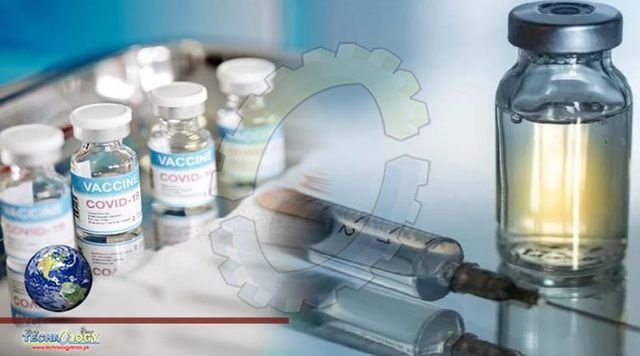According to researchers at Washington University School of Medicine in St. Louis and the Veterans Affairs St. Louis Health Care System, vaccinated people with mild breakthrough COVID-19 infections can experience debilitating, lingering symptoms affecting the heart, brain, lungs, and other parts of the body. A new study of more than 13 million veterans, however, discovered that immunization against Protection the virus that causes COVID-19 lowered the chance of mortality by 34% and the likelihood of developing long COVID-19 by 15% when compared to unvaccinated individuals infected with the virus.

Even vaccinated people with mild breakthrough COVID-19 infections can experience persistent debilitating symptoms that affect the heart, brain, lungs, and other parts of the body, according to new research from Washington University School of Medicine in St. Louis and the Veterans Affairs St. Louis Health Care System. The analysis of more than 13 million veterans also found that vaccination against the SARS-CoV-2 virus that causes COVID-19 reduced the risk of death by 34% and the risk of getting long COVID by 15%, compared with unvaccinated patients infected with the coronavirus. However, vaccines were shown to be most effective in preventing some of the most worrisome manifestations of long COVID – lung and blood-clotting disorders – which declined about 49% and 56%, respectively, among those who were vaccinated.
Vaccinations remain critically important in the fight against COVID-19,” said first author Ziyad Al-Aly, MD, a clinical epidemiologist at Washington University. “Vaccinations reduce the risk of hospitalization and dying from COVID-19. But vaccines seem to only provide modest protection against long COVID. People recovering from breakthrough COVID-19 infection should continue to monitor their health and see a health-care provider if lingering symptoms make it difficult to carry out daily activities.”
The researchers classified patients as fully vaccinated if they had received two doses of the Moderna or Pfizer-BioNTech vaccines or one dose of the Johnson & Johnson/Janssen vaccine. At the time the research was conducted, the database used for this study did not include information about whether patients received boosters.
“Now that we understand that COVID-19 can have lingering health consequences even among the vaccinated, we need to move toward developing mitigation strategies that can be implemented for the longer term since it does not appear that COVID-19 is going away any time soon,” said Al-Aly, who is also the chief of research and development at the VA St. Louis Health Care System. “We need to urgently develop and deploy additional layers of protection that could be sustainably implemented to reduce the risk of long COVID.” Such protective layers could include nasal vaccines that are more convenient or powerful than the current injections, or other types of vaccines or drugs aimed at minimizing the risks of long COVID.
Getting COVID-19, even among vaccinated people, seems almost unavoidable nowadays,” said Al-Aly, noting that 8 to 12% of vaccinated people with breakthrough infections may develop long COVID. “Our current approach will likely leave a large number of people with chronic and potentially disabling conditions that have no treatments. This will not only affect people’s health, but their ability to work, life expectancy, economic productivity, and societal well-being. We need to have a candid national conversation about the consequences of our current approach.”
Since the pandemic started, more than 524 million people globally have been infected with the virus; of those, more than 6 million have died – including more than 1 million in the United States alone. “Let’s say SARS-CoV-2 is here for 10 years,” Al-Aly continued. “People are sick and tired of masking and social distancing, and it’s simply not sustainable to ask that they continue to do so. We need to come up with additional layers of protection that allow us to resume normal life while co-existing with the virus. Current vaccines are only part of the solution.”
For the study, researchers analyzed the de-identified medical records of more than 13 million veterans. The records are in a database maintained by the U.S. Department of Veterans Affairs, the nation’s largest integrated healthcare delivery system. The researchers examined data of 113,474 unvaccinated COVID-19 patients and 33,940 vaccinated patients who had experienced COVID-19 breakthrough infections,
Source: This news is originally published by scitechdaily.
